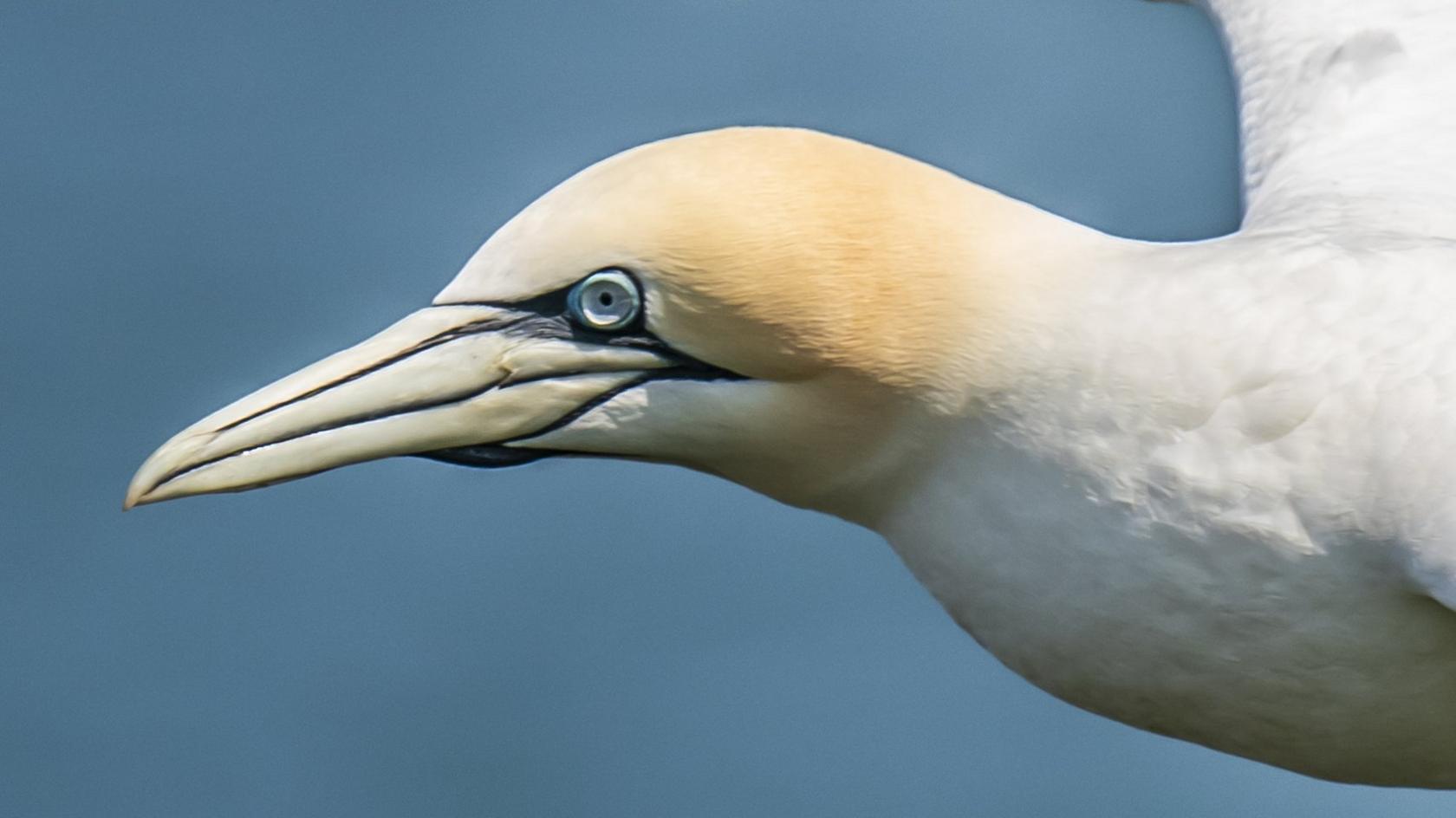Poultry keepers urged to minimise bird flu risk
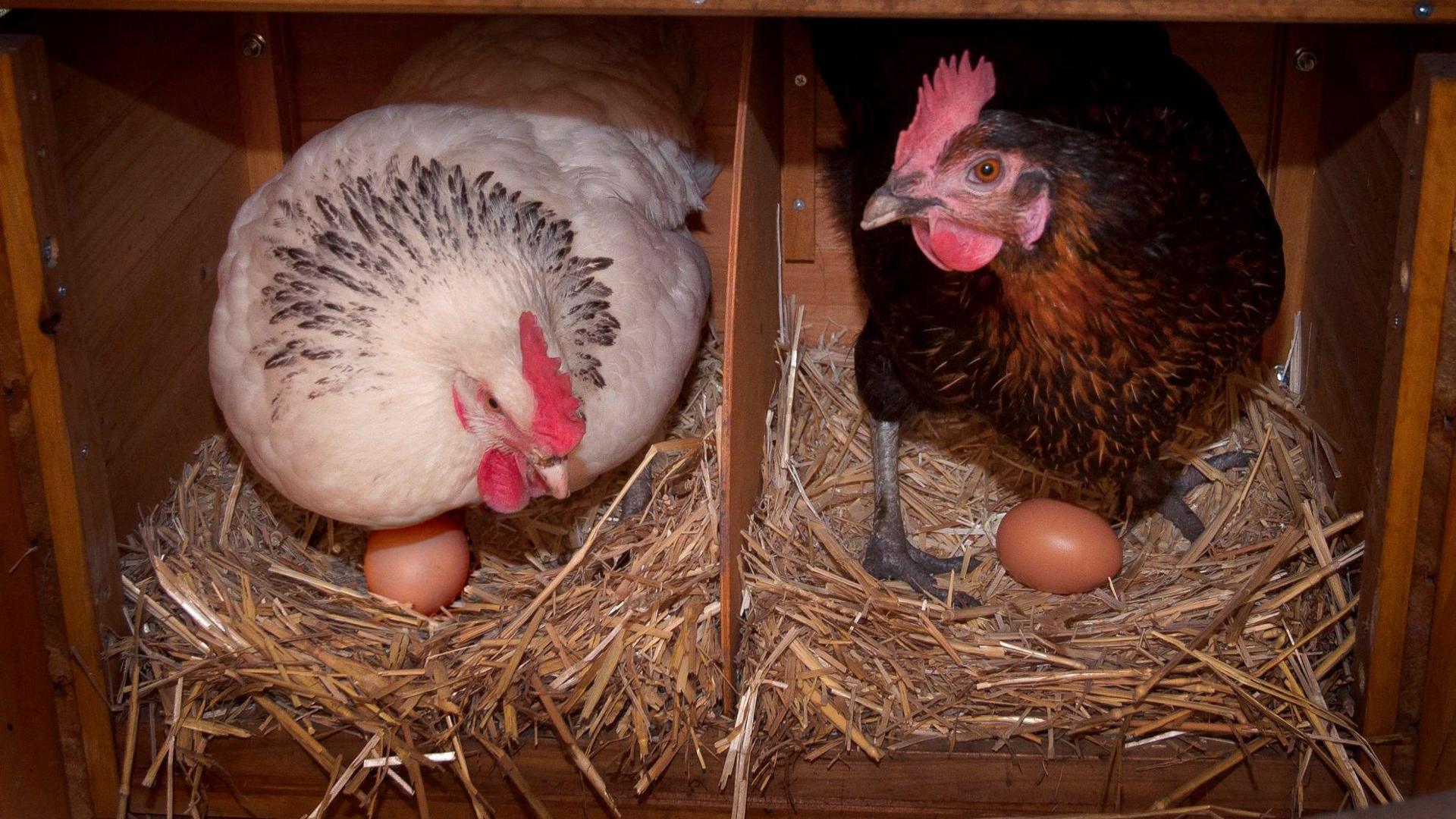
The States has reminded poultry owners to use biosecurity measures such as keeping food and water away from wild birds
- Published
Poultry keepers have been reminded to keep good biosecurity to avoid an outbreak of bird flu on the island.
An Avian Influenza Prevention Zone (AIPZ) with mandatory biosecurity measures was put in place across England and Scotland on 25 January.
The GSPCA said it received 2,000 to 3,000 sick and injured birds each year and advised people to keep food and water for their poultry away from wild birds.
The States of Guernsey Vet Department said all bird imports from England and Scotland now required an import licence.
The department said import licences would not be granted for birds from the regional AIPZ in the UK, external.
GSPCA manager Steve Byrne said: "Sadly, each winter in recent years avian flu is found throughout Europe.
"Every day we are called out and receive sick and injured birds with 2,000 to 3,000 though our doors every year."
He urged bird keepers to follow the advice and register flocks of poultry with the States Vets.
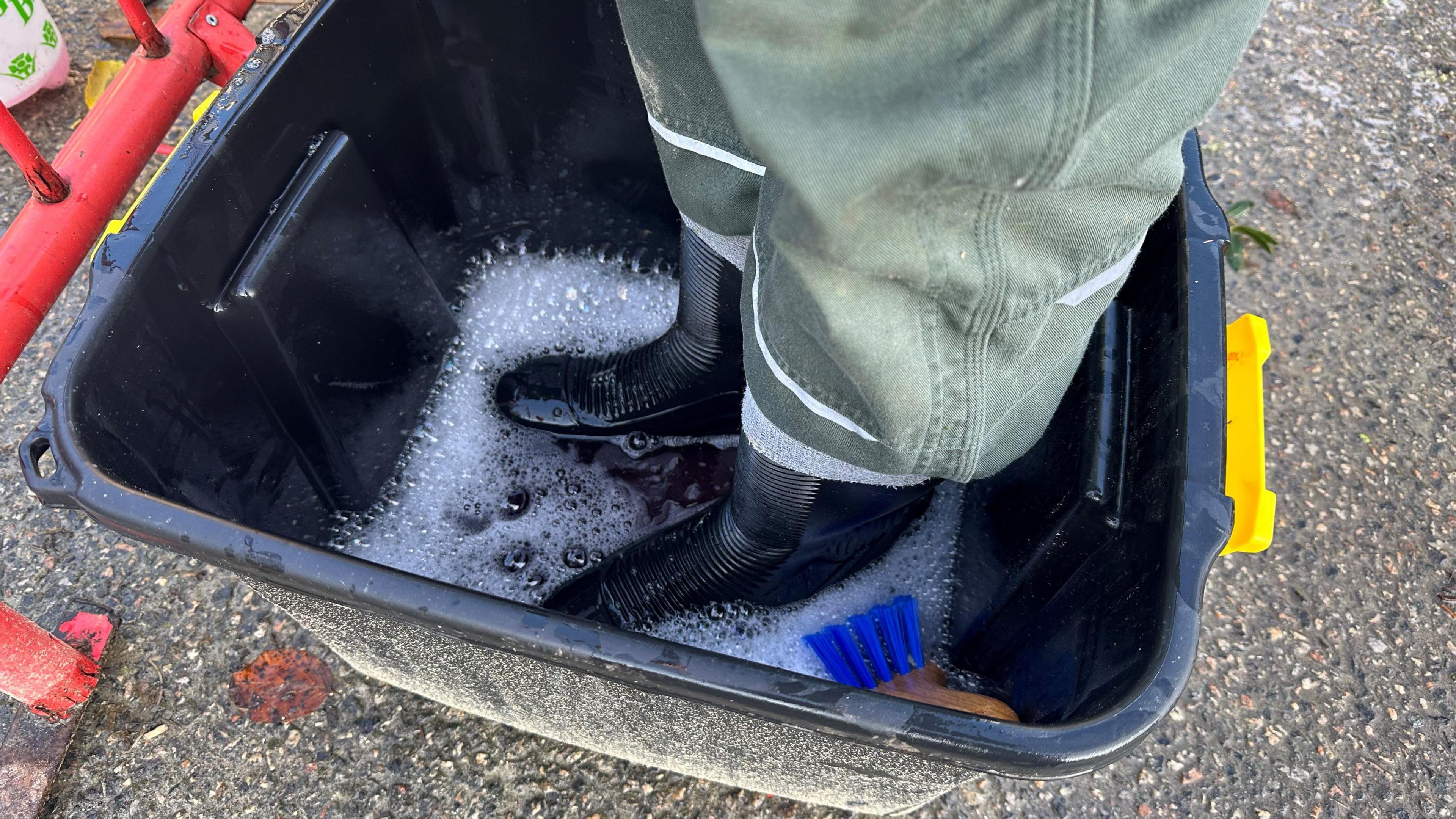
The States of Guernsey has urged poultry keepers to practice good biosecurity measures
The States said good biosecurity measures, external included housing birds where possible, using disinfectant foot baths, keeping food and water indoors and making premises unattractive to wild birds.
People who find a sick bird have been advised there are different organisations to contact.
If it is sick or dead poultry, or a bird of prey, contact the States Vets
If it is a sick wild bird, contact the GSPCA
If it is a dead sea bird or garden bird or pigeon on someone's property, they should properly dispose of it
If it is a dead sea bird on the shoreline, contact States Works
If the dead bird has leg rings, give the leg ring number, the date and place it was found to the States Vets
Follow BBC Guernsey on X, external and Facebook, external. Send your story ideas to channel.islands@bbc.co.uk, external.
- Published25 January
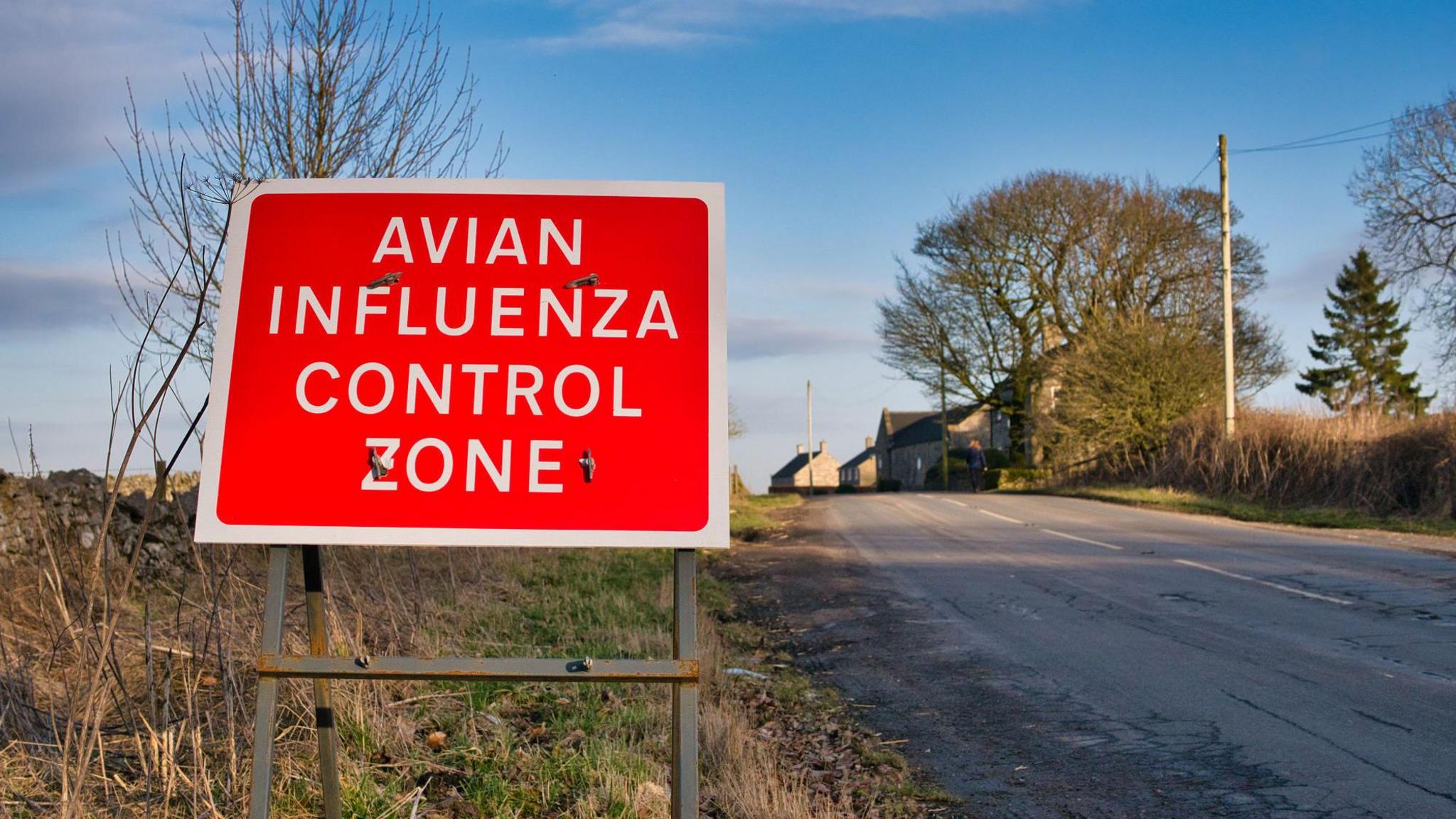
- Published31 January
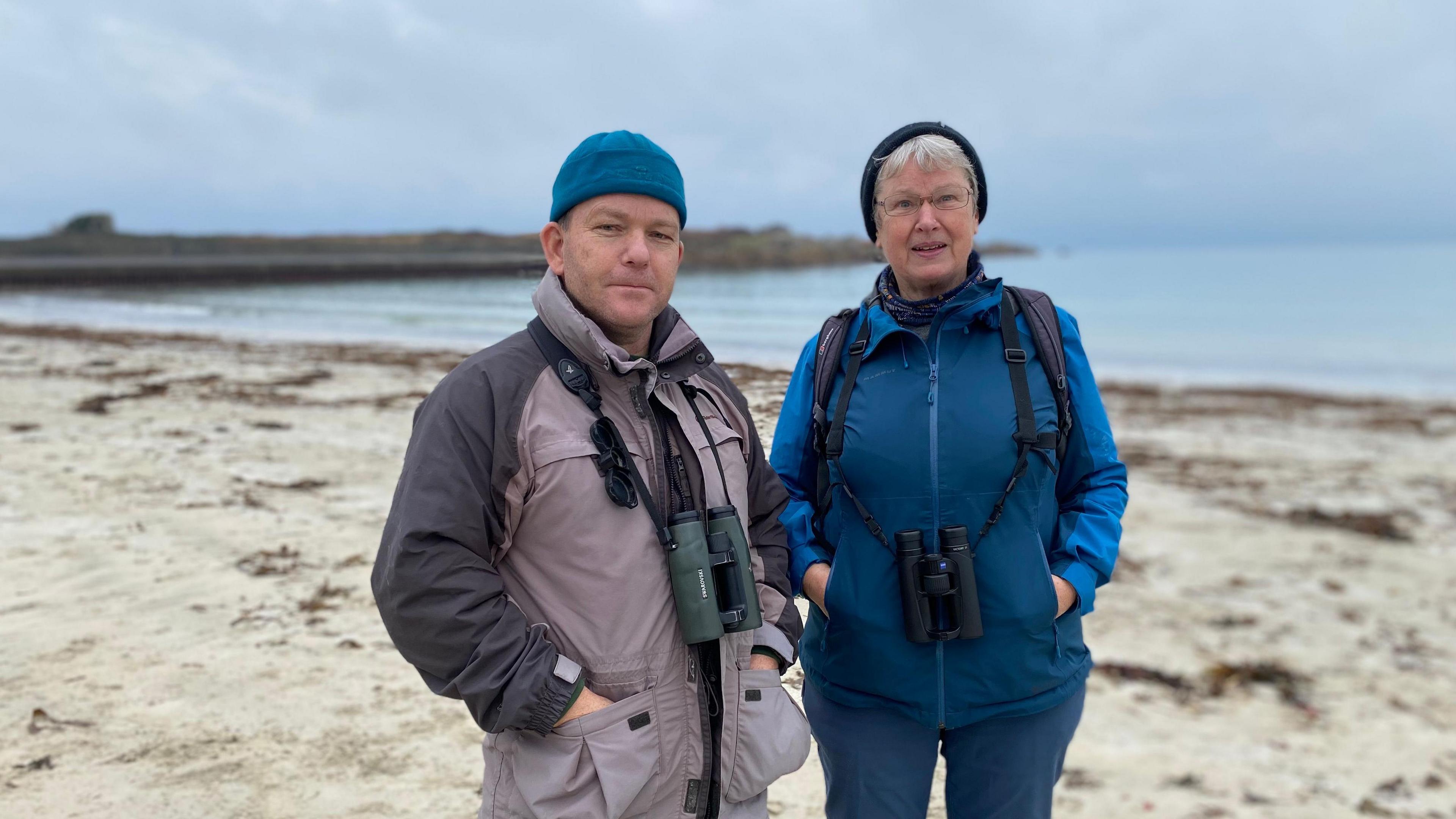
- Published18 February 2024
